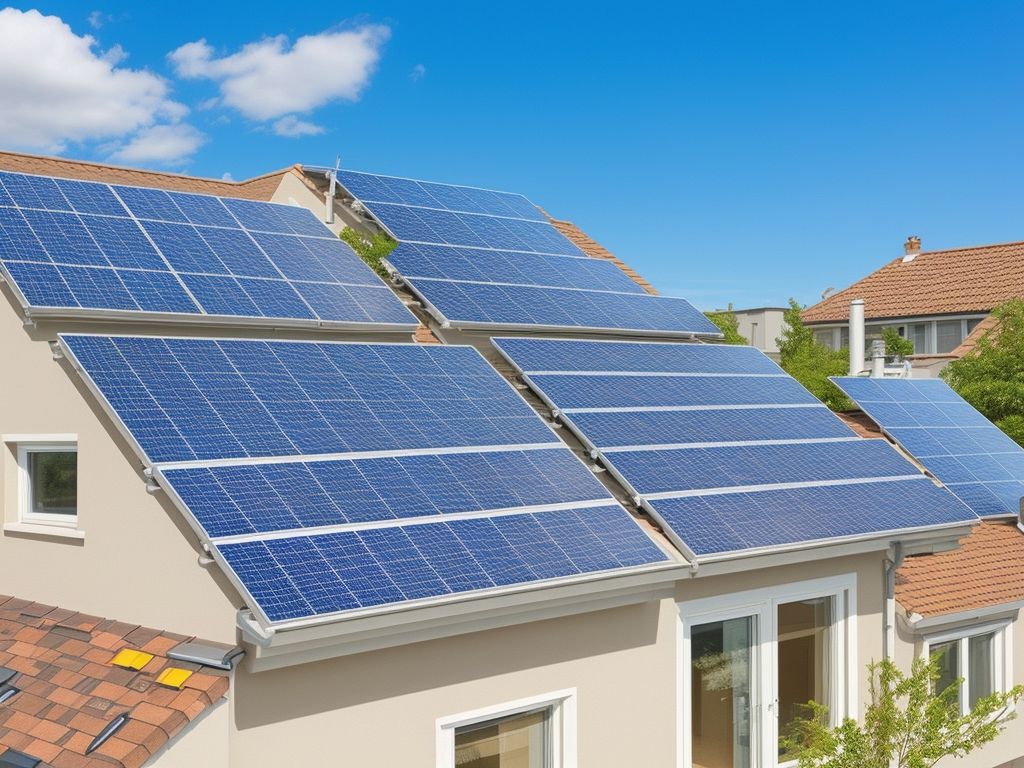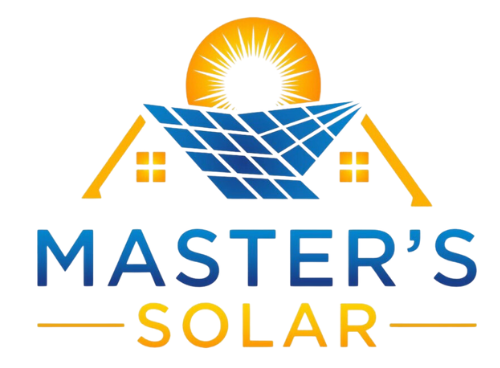Solar energy has become a popular option for those wanting to lessen their carbon footprint and cut down on electricity bills. As traditional energy prices keep rising, more people are turning to solar power as an alternate. Installing a solar system in your home can benefit you in many ways – from saving money on utility bills to helping the environment.
Here, we’ll discuss the cost of a solar system and factors that may affect the price.
When looking into the cost, it’s essential to remember there’s no one answer that fits everyone. Variables such as size of the home, energy use, and components of the installation all contribute to the final cost. Location also plays a big part in pricing, as climate and incentives vary from region to region.
To give you an idea for what to budget, here’s some info. For an average-sized home in the US, you’re looking at $15,000 to $25,000 for a complete solar system installation. This includes solar panels, inverters, mounting equipment, wiring, permits, and labor costs. But, be aware these figures can vary significantly depending on individual circumstances.
You may be wondering if solar is worth it. Not only will solar panels save you money in the long run by using sunlight instead of traditional energy sources, you’ll also qualify for various financial incentives. Many states offer tax credits or rebates that can reduce the upfront cost.
Going solar not only helps you but the environment too. By switching to renewable energy like solar power, you’re cutting down on greenhouse gas emissions and lessening our reliance on fossil fuels. Make a positive impact on our planet while gaining the advantages of a more sustainable and economical energy solution.
Factors influencing the cost of a solar system for a home
When figuring out the cost of installing a solar system for your home, there are several key considerations. These include system size, solar panel efficiency, type of solar panels, inverter technology, installation complexity, and local labor costs. Moreover, there are also maintenance, incentives, and financing options to consider.
To shed some light on these factors, here is a table with the main elements that influence the price of a residential solar system:
| Factors | Description |
|---|---|
| System Size | Total capacity measured in kW. |
| Solar Panel Efficiency | % of sunlight converted to electricity. |
| Type of Solar Panels | Technology & quality of the panels used. |
| Inverter Technology | Efficiency & performance of the inverter. |
| Installation Complexity | Difficulty of installing the system. |
| Local Labor Costs | Labor costs depending on location. |
Everyone’s experience is unique. To get a better understanding, hearing stories from people who have switched to solar energy can be very helpful. For example, Mark from California invested in a solar system after seeing the potential savings and reduced carbon footprint. He chose high-quality panels even though they were more expensive. Now, he benefits from a reliable and cost-efficient solar system.
Average cost range for a solar system
The cost range of a solar system can differ depending on various factors such as size, tech used, and location. Let’s review some data.
Table: Average Cost Range for a Solar System
| Size of System | Type of Technology | Location | Cost Range |
|---|---|---|---|
| 2 kW | Monocrystalline | California | $6,000 – $9,000 |
| 5 kW | Polycrystalline | New York | $12,000 – $16,000 |
| 10 kW | Thin-Film | Texas | $20,000 – $25,000 |
These figures are just estimates. Other things like incentives and rebates can also affect the total cost.
Also, some people may choose to lease their solar panels. This could mean lower upfront costs, but more expenses in the long run.
In recent years, solar system prices have gone down due to better tech and more demand. This has made solar systems more accessible for households.
Financing options for solar system installation
Leasing your solar panels from a third-party provider has little upfront cost, but you won’t own the system. Alternatively, you can enter a Power Purchase Agreement with a solar company who installs and maintains it. Solar loans are available from financial institutions with low interest. PACE Programs allow financing with property tax assessment. Federal Tax Credits come with the Investment Tax Credit. Lastly, check out state and local incentives for rebates and grants.
Considerations for each option:
- Leasing may give savings, but no tax benefits.
- Compare offers from providers to get the best deal for your needs.
Return on investment and long-term savings
A residential solar system has lots of potential returns and long-term savings. The average cost for a solar system is between $15,000 and $25,000. Plus, installation costs range from $2,500 to $5,000. So, the total cost is between $17,500 and $30,000.
Reduced electricity bills will help recover this initial investment. Generally, homeowners get their money back in 7 to 15 years. After that, they can enjoy free electricity for many years.
Furthermore, government incentives and financial assistance programs boost long-term savings. These include federal tax credits that cover up to 26% of installation costs. Plus, some states offer rebates or grants. And some states offer net metering programs where you can sell excess energy generated by your solar system at competitive rates.
For example, John and Sarah spent around $20,000 on their solar system. In the next 10 years, they saved an average of $1,200 per year on electricity bills. That’s a total of $12,000 in savings. Plus, state-level incentives and tax credits meant their return on investment was achieved in just 7 years.
Investing in a solar system is not just beneficial financially. It also contributes to a greener future by reducing dependence on fossil fuels and lowering greenhouse gas emissions.
Choosing a reputable solar system provider
When selecting a dependable solar system provider, here are key factors to consider:
- Company’s experience. Look for established companies with a successful record.
- Customer reviews. Check ratings and online reviews to assess satisfaction.
- Warranties provided. Make sure the company provides comprehensive warranties.
- Quality of solar products. Research brand reputation in the industry.
- Installation expertise. Confirm the company has certified installers.
- Financing options. Explore possibilities to finance or lease solar systems.
Each factor is important to guarantee you choose a dependable solar system provider. Spending time researching and comparing companies will help you make a wise decision.
Moreover, some reliable providers may offer extra services such as maintenance or monitoring. These benefits provide peace of mind and improve your overall experience.
John, a homeowner who wanted to switch to renewable energy, got quotes from multiple providers. He examined their credentials, customer reviews, and warranties offered. After careful thought, he chose a well-known firm with excellent feedback from customers. Now, John enjoys power generation from clean energy and cost efficiency, knowing that he made a well-informed decision.
When picking a reputable solar system supplier, take into account various factors. By evaluating elements such as experience, customer reviews, warranties offered, quality of products, installation expertise, and financing options available, you can guarantee a seamless and dependable panel installation for your home.
Conclusion
When it comes to investing in solar power for your home, there are various factors to consider when it comes to the cost. Size, quality, installation, incentives, maintenance, and energy goals all play a role.
So, what can one do to make the investment more affordable? Here are some tips:
- Research and compare different solar panel providers to get the best price.
- Look into financing options such as loans or leasing programs.
- Make your home more energy efficient by insulating windows and switching to LED bulbs. This may reduce the size of the solar system you need.
By taking these steps, you can make an informed decision that considers both short and long-term costs and benefits.
Frequently Asked Questions
FAQs – How much does a solar system cost for a home?
1. What factors affect the cost of a solar system for a home?
Several factors can influence the cost of a solar system for a home, including the size of the system, the type and quality of solar panels, the complexity of the installation, the location of the property, and any additional features like battery storage.
2. What is the average cost of a solar system for a home?
The average cost of a solar system for a home can vary depending on the factors mentioned above. However, as a rough estimate, the average cost can range from $10,000 to $30,000 or more, considering a typical residential installation.
3. Are there any financial incentives available to lower the cost?
Yes, there are several financial incentives available to reduce the cost of installing a solar system for a home. These may include federal or state tax credits, rebates, grants, or net metering programs. It is recommended to consult with local solar installers or contact the government entities responsible for renewable energy incentives in your area.
4. Is it possible to finance the cost of a solar system?
Yes, many solar installation companies offer financing options to help homeowners cover the upfront cost of a solar system. These financing options may include solar loans, power purchase agreements (PPAs), or solar leases. It’s important to compare and evaluate the terms and conditions of different financing options to choose the most suitable one.
5. Can the cost of a solar system be recouped through savings on electricity bills?
Yes, installing a solar system can lead to significant savings on electricity bills over time. The exact amount of savings depends on various factors such as electricity usage, local electricity rates, and the system’s efficiency. It is advisable to conduct a thorough analysis of potential savings with the help of a solar professional before making a decision.
6. How long does it typically take to recoup the cost of a solar system?
The time required to recoup the cost of a solar system varies depending on factors like the upfront cost, electricity consumption, system performance, and energy savings. On average, homeowners can expect to recoup their investment in about 5 to 15 years. However, this payback period can be shorter in areas with higher electricity rates.
Related posts:
- How Much Does Solar Increase Home Value? | Zillow Insights
- How Much Do Home Solar Panels Cost? A Complete Guide to Solar Panel Prices
- Determining the Perfect Size: How Much kW Solar Panel is Required for Your Home
- How Many Solar Panels to Power Home? A Comprehensive Guide on Calculating Solar Panel Requirements



